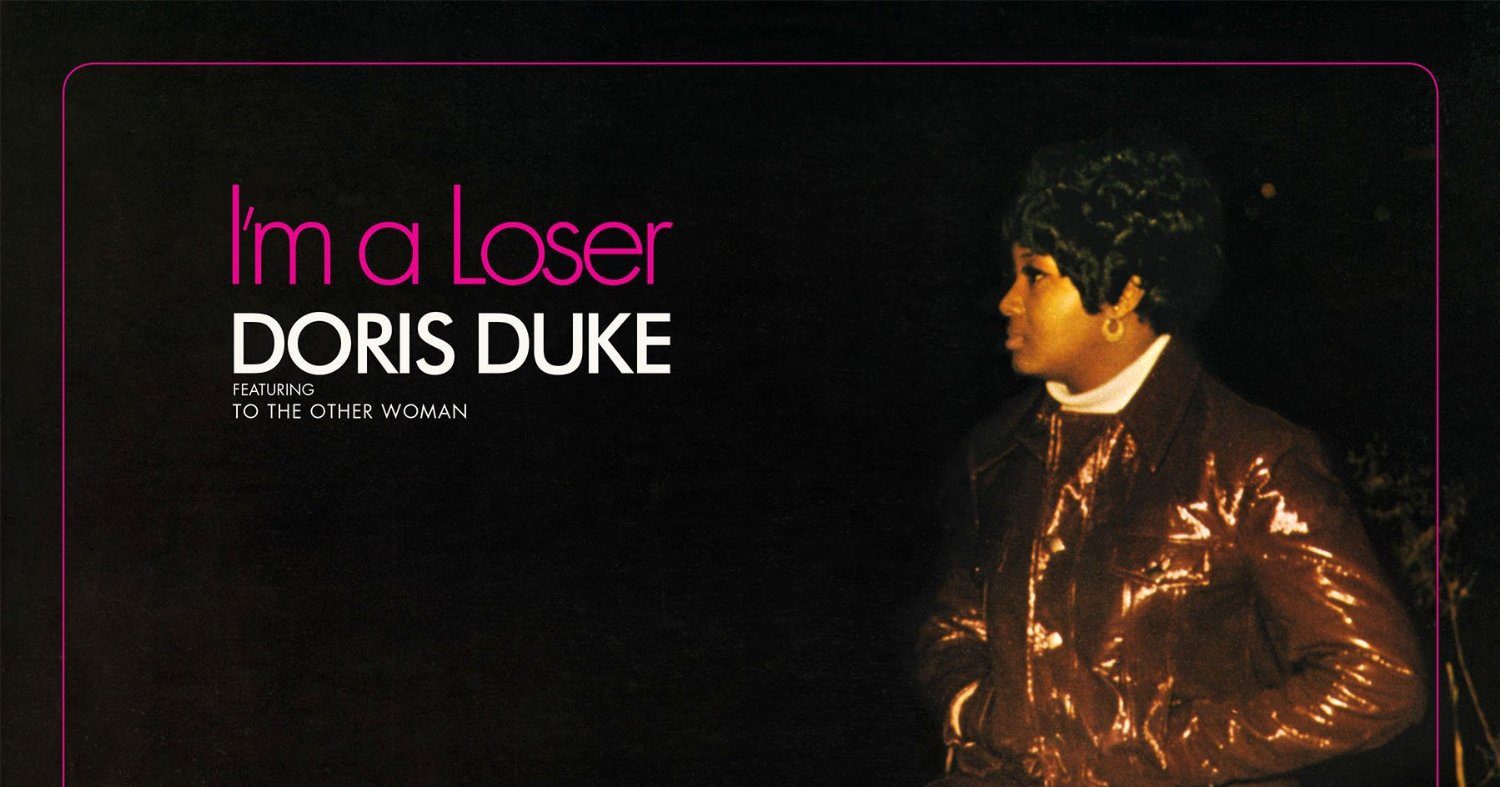Doris Duke was born in Sandersville, Georgia– most notable for its chalk and Dairy Lane– and like many R&B/soul artists, she found gospel music the gateway to more worldly artistic expression. She labored for a few years in the shadows, singing backup to a wish list-resume that included Dusty Springfield, Frank Sinatra, Sammy Davis Jr., and Nina Simone. In 1969, Atlantic Records factotum Jerry Williams Jr.– perhaps best known these days as cult soul icon Swamp Dogg– took interest in Duke, funding the single, “Congratulations Baby” b/w “Divorce Decree” and her debut LP, I’m a Loser, a soul masterpiece recorded in Macon, Georgia at Capricorn Studios and now threatened with obscurity.
Barebones, desperate, and distraught, I’m a Loser, pulses with soap opera tension, delivering its title’s promised tumult. There are the occasional orchestral swells and up-tempo signs of life, but mostly the percussion simmers with perpetual snare taps– more funeral than martial– building a tempo that never blasts off, a tension that never resolves itself. Our singer is in a relationship and it’s complicated. She’s part of the problem and she recognizes that on the album’s opening cut “He’s Gone”, a prayer going nowhere, a repentant realization of a good thing lost. Perhaps hope fuels the following song, the rolling “I Can’t Do without You”, but there’s little absolution in coming clean.
From here, the romantic entanglements get messier, the losses more cutting: the unrequited love for your closest confidant (“Your Best Friend”); bedswervers and those who love them (“Feet Start Walking”); shotgun weddings (“Congratulations Baby”); forsaken marital bonds (“We’re More than Strangers”); and bizarre love triangles (“To the Other Woman [I’m the Other Woman]). “Ghost of Myself” finds heartbreak at its most existential. Suffering the erasure that accompanies heartbreak, Duke keens, “I’ll just wander from pillar to post/’Cause don’t nobody want to love a ghost.”
I’m a Loser is proof that Capricorn’s legacy extends beyond a Southern Rock brotherhood. Played in one sitting, Duke’s all-torn-up grief and wail might overwhelm some listeners, but it’s a record that documents the lived experience of loss and, if not healing, resilience. Heartbreak can be entertaining, amusing, or exhausting when it’s happening to someone else, but when we’re in the grips of it, there’s value in hearing from others who’ve made sense of romantic calamity. You can call it maudlin, melodramatic, or TMI, but we’ve all been there before– and damn if we might not be again.
